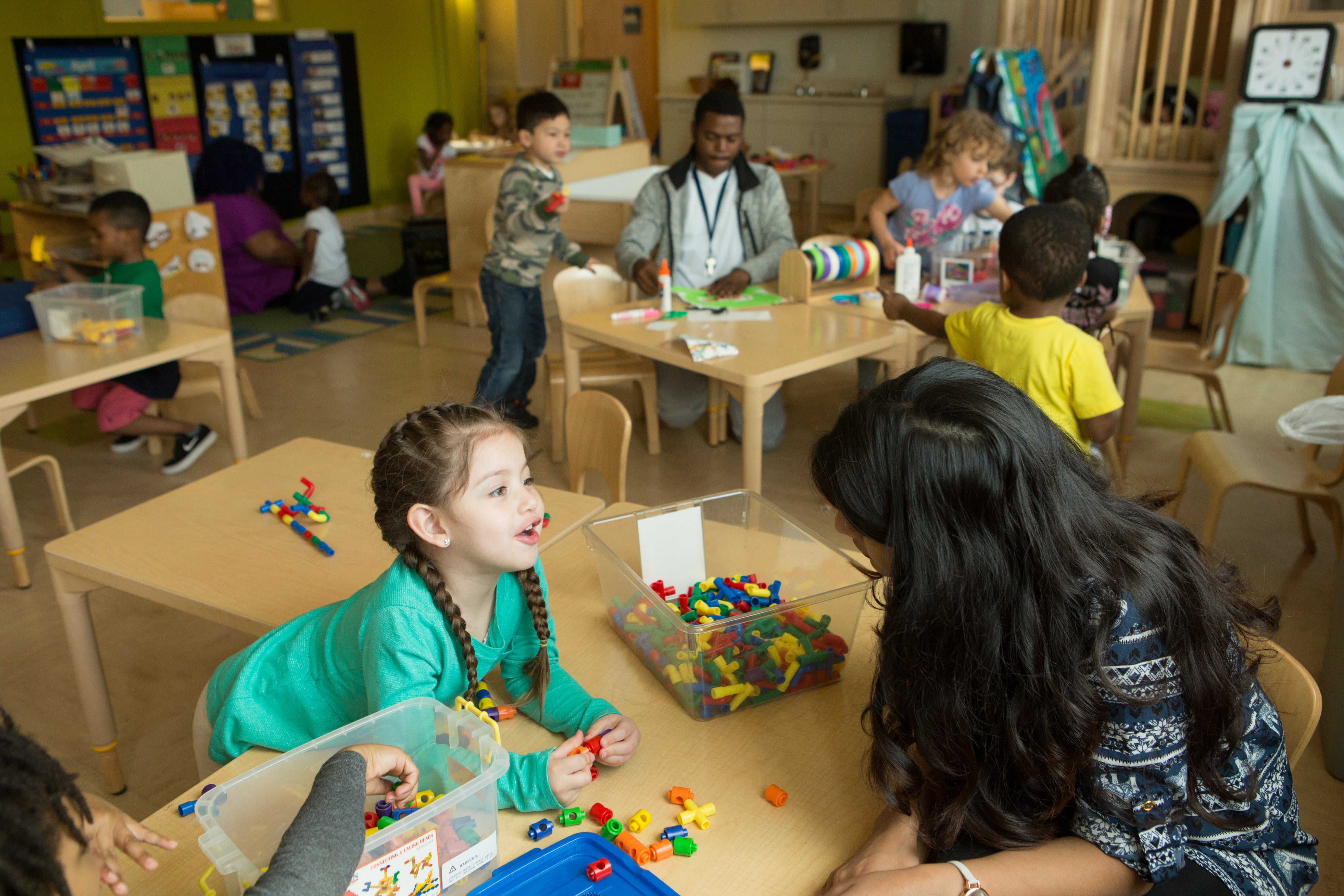Sign up for Chalkbeat New York’s free daily newsletter to keep up with NYC’s public schools.
New York City families: Applications to the city’s free public preschool programs are now open.
The application period began Wednesday and will remain open until March 1, according to city officials. Parents have about two months to submit applications to preschool programs for 3- and 4-year-olds, with offers scheduled to release in May.
The city’s 3-K (for 3-year-olds) and pre-K (serving 4-year-olds) programs offer free, full-day educational programming in public schools as well as community-based organizations. (“Full day” means 6 hours and 20 minutes.) They can be hugely beneficial to families, saving them thousands of dollars in child care costs.
Research has found preschool programs can have positive impacts on a child’s development, academic performance, and health.
Making pre-K universal for the city’s 4-year-olds is widely considered former Mayor Bill de Blasio’s crowning achievement. He aimed to do the same for the city’s 3-year-olds, but never had the full funding in place to make 3-K universal, relying on temporary federal COVID relief dollars to expand the program. But in recent years, enrollment in pre-kindergarten classes has fallen significantly, and thousands of seats in the city’s program for 3-year-olds have gone unfilled. The sector’s challenges have also grown as a result of budget cuts and the looming expiration of federal COVID relief funds.
Here’s what families need to know:
How to apply
Parents can apply in three ways:
- Online at MySchools.nyc;
- Over the phone by calling 718-935-2009 Monday through Friday between 8 a.m. and 6 p.m.;
- Or in person by going to a family welcome center.
The city’s Education Department will also host virtual information sessions to help families learn more about the admissions process, officials said.
Families can attend virtual sessions either by visiting this link and entering a passcode posted here, or by calling 646-931-3860 and entering the following conference ID: 939 3029 2133.
The first virtual session will take place Thursday at 2 p.m., with others scheduled over the coming weeks. Interpretation services will also be offered, according to city officials.
Other virtual information sessions:
- Jan. 18 at 6 p.m.
- Jan. 23 at 6 p.m. in Spanish
- Feb. 7 at 2 p.m.
- Feb. 15 at 6 p.m.
How preschool programs have changed
The city’s early childhood programs have undergone changes in recent years, with Mayor Eric Adams stepping back from an expansion to 3-K planned by his predecessor, while vowing to ensure the city offers enough seats to preschool students with disabilities.
The city has also moved toward a single curriculum.
Though data released in November showed enrollment in the city’s public schools rising slightly for the first time in eight years, figures remain below pre-pandemic norms.
The number of children attending pre-kindergarten programs has declined by more than 12,000 since the pandemic began, with about 56,900 children enrolled as of this year. Despite growing demand for 3-K programs, thousands of seats remain empty.
Some declines may have been caused by outside factors, like birth rates falling nationally over time or families leaving the city as housing costs have risen. But advocates have also complained that many 3-K programs are only available between 8 a.m. to 3 p.m., making them difficult for working parents to take advantage of.
Education Department officials have noted that seats in some areas are in higher demand, adding the city has worked to shift unfilled seats to areas with greater need.
City officials have put money toward addressing the enrollment losses and empty seats. Last year, officials said the city would pay a consulting firm just over $760,000 to help determine how to allocate 3-K seats across different neighborhoods. And in the fall, the city moved to spend $21 million on a two-year ad campaign to provide families with information about enrolling in public schools.
Programs brace for budget cuts
The sector is likely to face further challenges ahead, as the city’s Education Department undergoes budget cuts, and as federal COVID relief funds are set to expire in the fall. In November, Adams directed the city’s Education Department to cut nearly $550 million from its budget, with further cuts still expected.
An analysis released Wednesday by the city’s Independent Budget Office showed those cuts would reduce the overall budget for 3-K and pre-K by $82 million beginning in 2025 — with 3-K facing an additional loss of $10 million each year in 2026 and 2027, after the expiration of federal funds.
Julian Shen-Berro is a reporter covering New York City. Contact him at jshen-berro@chalkbeat.org.







